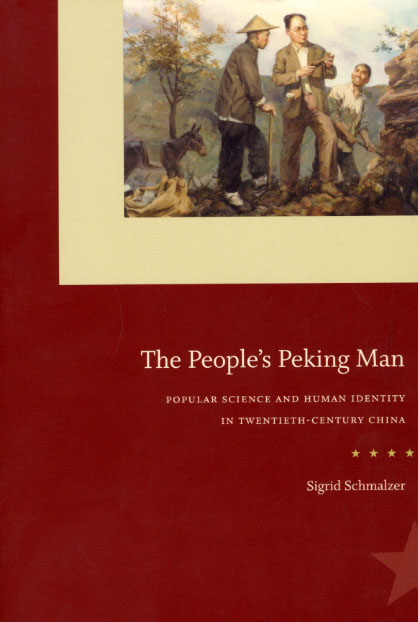Carbon dating and the incredibly old man

Last week, the journal Nature featured a cover story about Homo erectus, known familiarly as Peking Man. Although its age has been debated for decades, researchers recently used a new technique to date the deposits to about 770,000 years—about 300,000 years earlier than previously thought. Further research has prompted researchers to reevaluate the range of the species in Asia. As the BBC reports, “The discovery should help define a more accurate timeline for early humans arriving in North-East Asia.”
Peking Man is, of course, the richest evidence of evolution the world has ever seen. Unearthed in the 1920s by an international team of scientists and miners, the fragmentary remains add up to much more than a picture of what human life looked like three-quarters of a million years ago. For historian of science Sigrid Schmalzer, Peking Man has as much to tell us about role of science in twentieth-century China and it does about human evolution.
The People’s Peking Man: Popular Science and Human Identity in Twentieth-Century China is a skilled social history of twentieth-century Chinese paleoanthropology and a compelling cultural—and at times comparative—history of assumptions and debates about what it means to be human. Situating the Peking Man firmly in the era in which he was discovered, Sigrid shows that after the communist revolution of 1949 Peking Man became a prominent figure in the movement to bring science to the people. In a new state with twin goals of crushing “superstition” and establishing a socialist society, the story of human evolution was the first lesson in Marxist philosophy offered to the masses. But, at the same time, even Mao’s populist commitment to mass participation in science failed to account for the power of popular culture—represented most strikingly in legends about the Bigfoot-like Wild Man—to reshape ideas about human nature. In the In the new picture Schmalzer presents of recent Chinese history, human identity is central to cultural and political change. By focusing on issues that push against the boundaries of science and politics, The People’s Peking Man offers an innovative approach to modern Chinese history and the history of science.